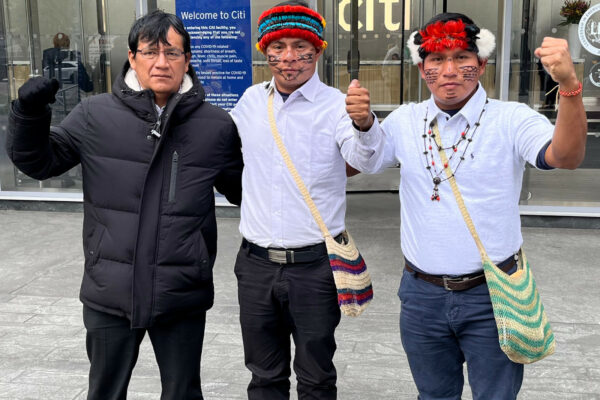Brasilia, Brazil – A coalition of environmentalists, indigenous people, and social movements in Brazil condemned the news that an environmental license was issued yesterday by the Brazilian environmental agency (IBAMA) for the Belo Monte Hydroelectric Dam. Belo Monte, slated to be the world’s third largest hydroelectric project, has been mired in controversy. The massive project would divert the flow of the Xingu River and devastate an extensive area of the Brazilian Amazon rainforest, threatening the survival of indigenous peoples.
Belo Monte is the largest project of the Brazilian government’s Plan to Accelerate Growth program (PAC). Brazil’s state investment bank BNDES will be the main financier of the project contributing one third or more of the project’s estimated US$12.3 and US$17.5 billion price tag.
IBAMA had stalled on issuing the environmental license for almost 3 months due to concerns about the huge impact zone of the project and the number of migrants that would move to Altamira in search of work. Two senior IBAMA officials resigned last November after claiming that they had been subjected to political pressure to approve the license. And only days ago, the civil society group Movimento Xingu Vivo Para Sempre, distributed a document signed by six environmental analysts from IBAMA voicing concern that Belo Monte’s impacts to the Xingu river basin and riverine and indigenous communities had not been adequately studied.
Federal Attorneys have filed suit to force the government to hold additional public hearings to discuss the project’s impacts, and further legal challenges to the project are likely.
Indigenous peoples have been fighting against the project for more than 20 years dating to the late 1980’s when the rock star Sting publicized the battle. Megaron Tuxucumarrãe, a Kayapó chief, says, “We want to make sure that Belo Monte does not destroy the ecosystems and the biodiversity that we have taken care of for millennia. We are opposed to dams on the Xingu, and will fight to protect our river.”
Independent investigations have found that project studies underestimate the extent of Belo Monte’s potential impacts.
Francisco Hernandez, an electrical engineer and co-coordinator of a group of 40 specialists who analyzed the project says, “Belo Monte is a project of doubtful engineering viability, an extremely complex project which would depend on the construction not only of one dam, but rather a series of large dams and dykes that would interrupt the flow of water courses over an enormous area, requiring excavation of earth and rocks on the scale of that carried out for digging the Panama Canal.” Belo Monte would generate little energy during the three to four-month low water period, “which does not justify such an enormous investment”.
“When one considers the high cost estimates for building the dams and then factors in the engineering uncertainties, the high environmental and social costs, and the project’s carbon and methane emissions, Belo Monte makes no economic sense,” said Christian Poirier, Brazil Program Coordinator at Amazon Watch. “The question remains why is BNDES, a publicly funded bank, willing to invest such significant portion of its liquidity in Belo Monte? “
While BNDES will finance a significant portion of the project’s massive cost, project developers will need to seek a substantial amount of private financing. “Considering the enormous financial, legal and reputational risks, it would be imprudent to invest in this project,” says Roland Widmer, Coordinator of the Eco-Finance Program of Amigos da Terra – Amazonia Brasileira.
The dam is likely to be offered to private investors at an auction in April and construction is expected to start in late 2010. This adds Belo Monte to a list of more than 100 large dams being planned in the Brazilian Amazon, most of which would threaten indigenous and riverine communities and protected areas.













